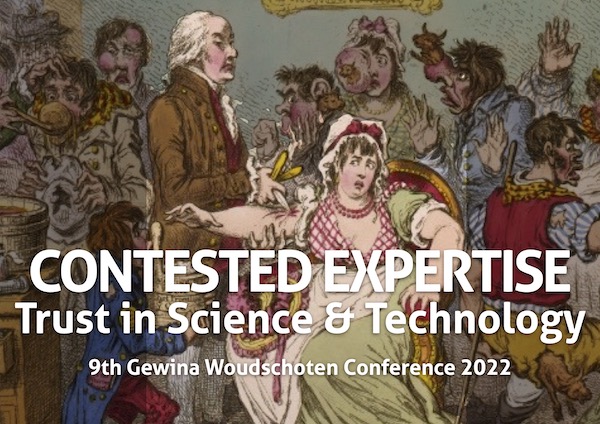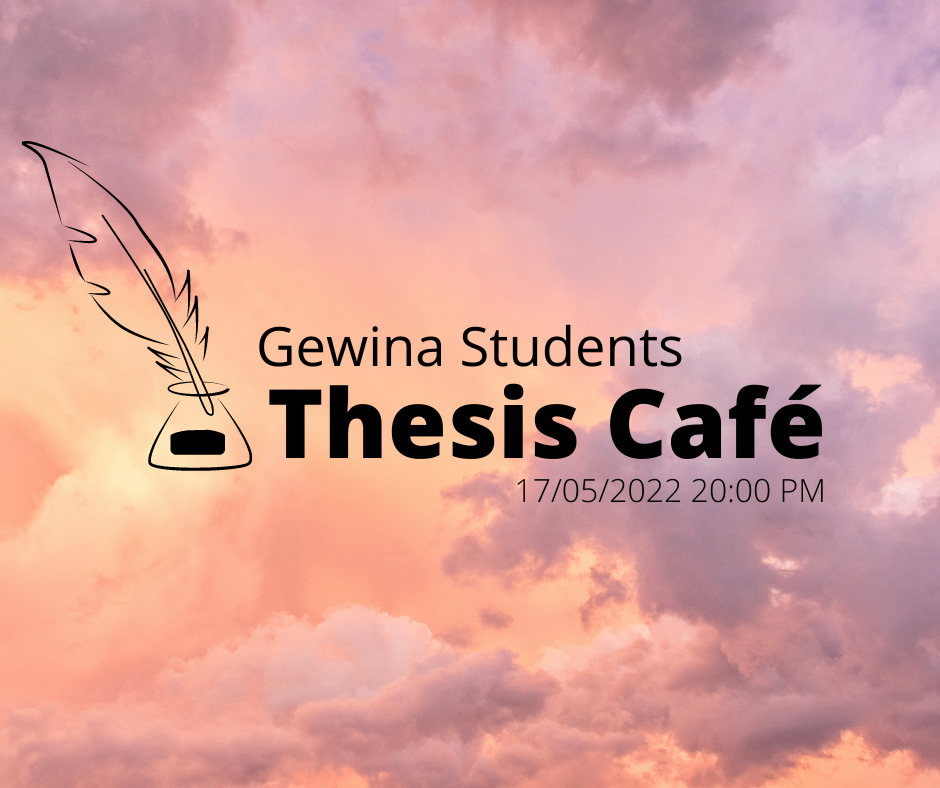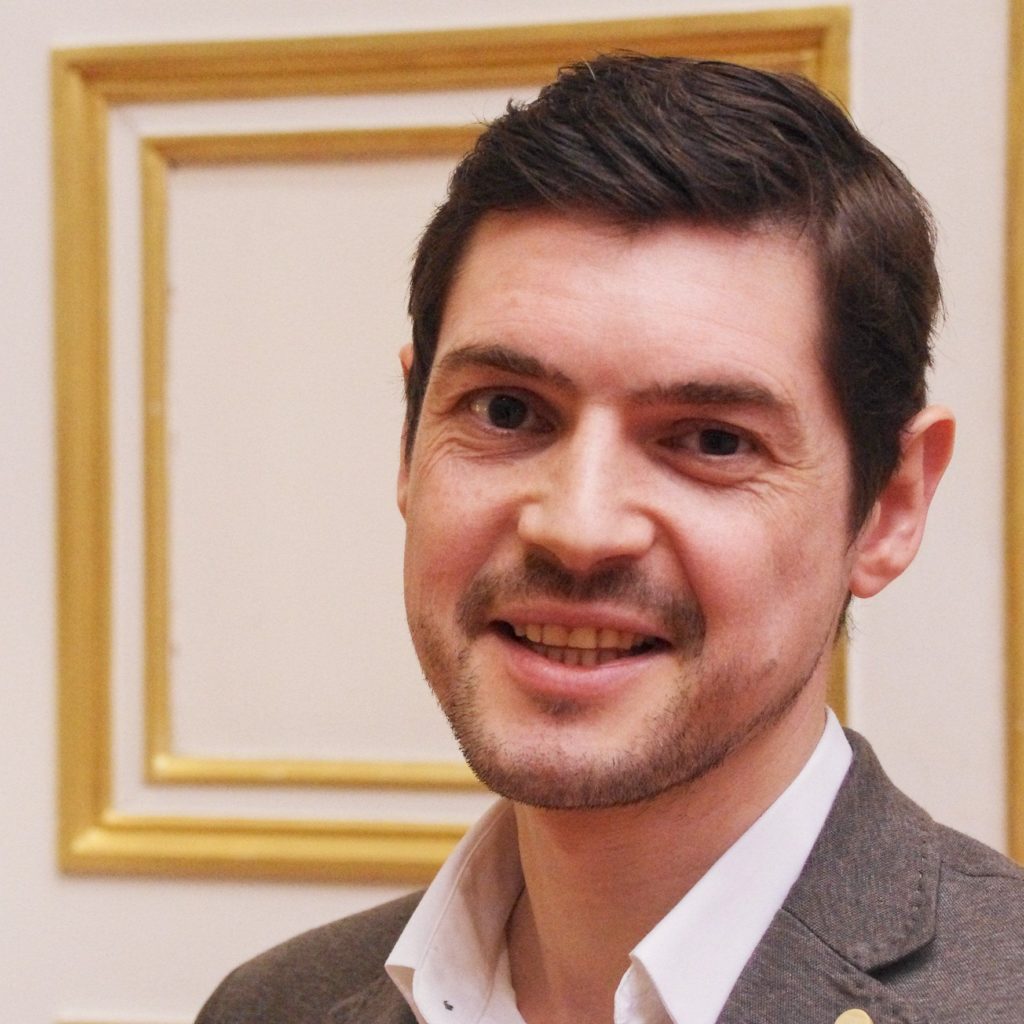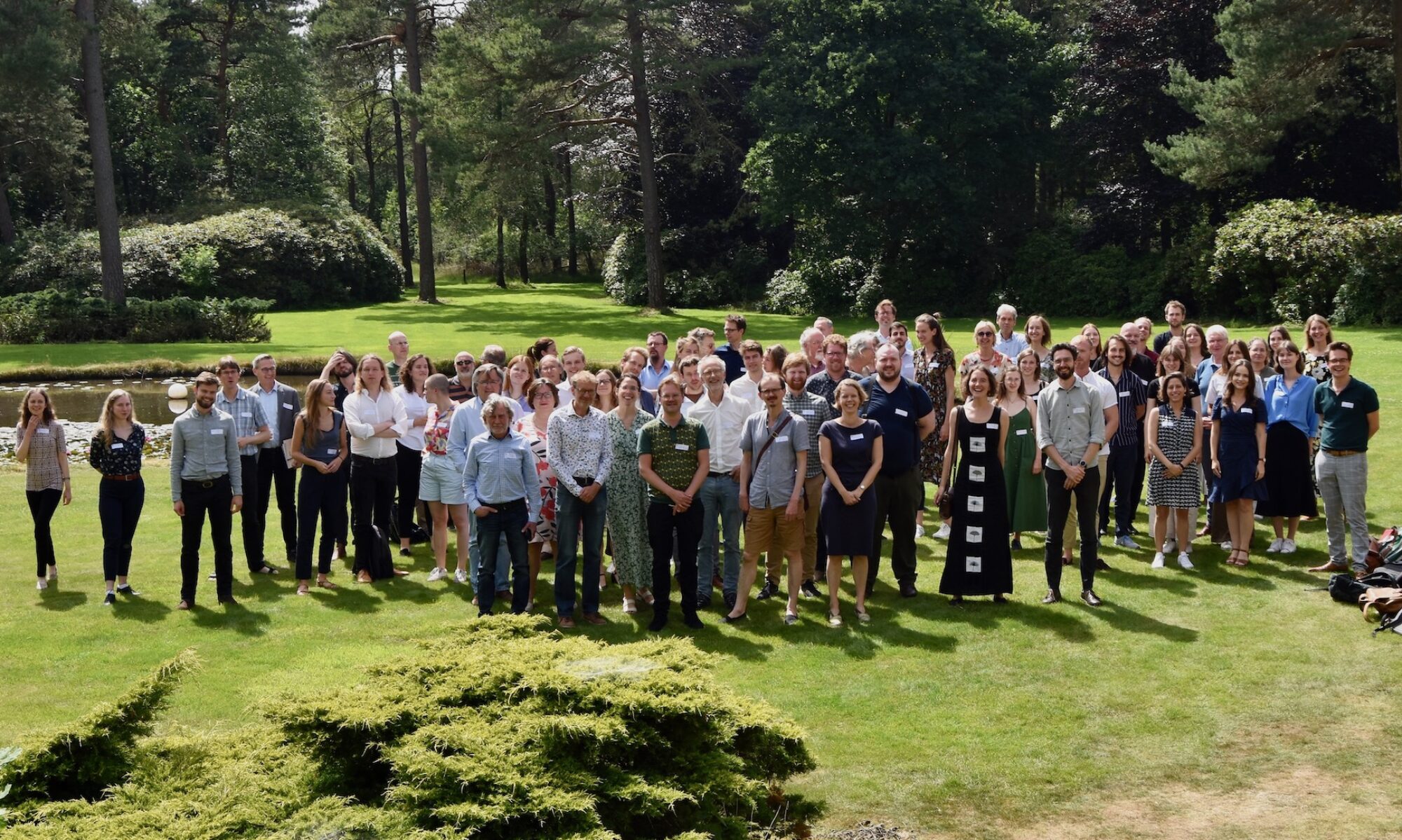Categorie: Nieuws
9th Gewina Meeting of Historians of Science in the Low Countries: Register now!

Contested Expertise: Trust in Science and Technology
Woudschoten Conference Center, Zeist, 17-18 June 2022
Welcome to the conference! We want to thank you for your enthusiastic response to the call for papers and look forward to your presentations. If you have any questions about registration, the programme, or other organisational issues, please mail us at contestedexpertise@gmail.com
Programme
Please click here to download the latest Programme of the Conference (updated on 13 June 2022).
Lees verder “9th Gewina Meeting of Historians of Science in the Low Countries: Register now!”Students Thesis Café

Tuesday 17 May 2022 8pm
We would like to invite students to the Gewina Students thesis café on Tuesday May 17 at 20.00. During this informal meeting students can share best practices on issues like writers block, deadline stress or how best to deal with feedback. Sign up here !
Best wishes,
Claire Morrison & Tim Debroyer
Joris Vandendriessche neemt afscheid als bestuurslid

In najaar 2021 nam Joris Vandendriessche afscheid als bestuurslid van Gewina. 7 jaar lang heeft hij zijn steentje bijgedragen aan de uitbouw van wetenschaps- en universiteitsgeschiedenis in België en Nederland. Om hem te bedanken hebben we zijn belangrijkste verwezenlijkingen eens op een rijtje gezet.
Lees verder “Joris Vandendriessche neemt afscheid als bestuurslid”Call for papers: Does Science need Heroes? (Nobel) Prize cultures in the Netherlands
The history of the Nobel Prize, the most prestigious and visible science award in the world, is since the very beginning in 1901 intertwined with Dutch science history. Counting more than twenty Dutch laureates to date, among others Einthoven, van ’t Hoff and Tinbergen, the Netherlands rank among the top ten nations in the statistics of Nobelists per country.
Having said that, our understanding of how awards have been and are used as a symbol for excellence has remained poor. Using the Netherlands as a case-study, this symposium aims at investigating how scientific prizes in general and the Nobel Prize in particular are enacted in different settings (museums, universities, cities) and for various purposes. Drawing on current discussions about ‘heroes’ in science (vs. teamwork), we wish to explore the meanings and motives of scientific accolades in the Netherlands and beyond.
Lees verder “Call for papers: Does Science need Heroes? (Nobel) Prize cultures in the Netherlands”Kennismaken met: Jolien Gijbels

Het bestuur heeft het genoegen u voor te stellen aan ons nieuwe bestuurslid en Wonderkamer redacteur Jolien Gijbels. Jolien is als postdoctoraal onderzoeker verbonden aan de Leuvense onderzoeksgroep Cultuurgeschiedenis vanaf 1750.


